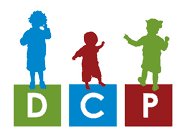Program Offerings
We offer Full Day programming in all of our classrooms from 8:30-3:00. Each classroom is supported by three full-time educators: two lead educators and an associate educator. Per licensing children are required to have at least an hour of quiet rest/nap time.
Toddlers: 18 months-3 years (10-14 children per group 1:4 educator/child ratio)
2 day/week TODDLER program - Thursday/Friday
3 day/week TODDLER program - Monday/Tuesday/Wednesday
5 day/week TODDLER program - Monday - Friday
Young Preschool: 3-4.5 years (16 children per group, 1:5 educator/child ratio)
2 day/week YOUNG PRESCHOOL program - Thursday/Friday
3 day/week YOUNG PRESCHOOL program - Mon/Tues/Wed
5 day/week YOUNG PRESCHOOL program - Monday - Friday
Older Preschool: 4-6 years (18 children per group, 1:6 educator/child ratio)
2 day/week OLDER PRESCHOOL program - Thursday/Friday
3 day/week OLDER PRESCHOOL program - Mon/Tues/Wed
5 day/week OLDER PRESCHOOL program - Monday - Friday
Toddler Classes
Confidence and Cooperation
DCP’s Toddler classes (18 months - 3 years of age) offer a fun learning experience that captivates eager minds. Learning to separate comfortably from a trusted primary caregiver is an important milestone for children this age. Our educators work closely with parents and caregivers to support this process through a team approach, keeping the child at the center of this transition. Our goal is for children to feel comfortable, at-ease, and excited for their day at preschool.
Our educators are well versed in the developmental needs of children in this age group. They understand that children are in different stages of learning toileting (and that some have not started) and gracefully accommodate all children’s needs. Educators create a warm learning environment, using open-ended ideas that relate to the interests of the individuals in their class and the world around them. The classrooms are stimulating and challenging to ensure each child a platform for growth, exploration and creativity. Sensory experiences abound, along with dramatic play areas to grow imaginations.
Objectives
By the end of the year, children feel secure and confident in the classroom environment. They will have also gained self-confidence through their ability to easily separate from parents. They will move from independent play toward cooperative play while gaining friendships along the way. Progress occurs in fine-tuning small- and large-motor skills, following directions, listening to stories in a group, and participating in music and movement activities.
Learn more about the Toddler Class
Young Preschool Classes
Sharing and Social Skills
DCP’s Young Preschool classes (3-4 years of age) have a learning atmosphere filled with fun, enthusiasm, and imagination. Learning takes place throughout the classroom – from the art easel and reading area, to the role-playing corner, block area and beyond. Children move freely about the room to enjoy many teacher-prepared learning stations. Educators are always nearby to answer the children’s questions, to provide inquiry that expands thinking and play, and to simply listen as children share their thinking and learning. On an ongoing basis, colors, letters, numbers, names, shapes and social norms are covered through play.
Objectives
By the end of the year, children become more adept at sharing toys, ideas and feelings with adult role modeling and interacting to strengthen social-emotional skills. Children have ownership of their level of engagement and enjoyment during their time at school. The skills of learning independently and learning in a group are fostered through playtime and circle time.
Learn more about the Young Preschool Class
Older Preschool Classes
Social, Emotional and Academic Growth
DCP’s Older Preschool classes (4-5 years) provide many opportunities for children to explore and learn. Our well-equipped learning centers are designed to expand play while building a strong foundation for future academic achievement. The educators celebrate each child’s social, emotional and academic growth.
Objectives
By the end of the year, children are familiar with a variety of literature, math concepts, writing skills and world awareness. Early literacy opportunities, sensory experiences, increased expectations for self control and ample practice in building friendships are also fostered. Self-directed play in the classroom encourages social interactions with peers and reinforces negotiation and cooperation skills. Children begin to understand their own feelings and those of others, while developing the skills to express them in a socially acceptable manner. Friendships are built through shared experiences both inside and outside the classroom.
Learn more about the Older Preschool Class
